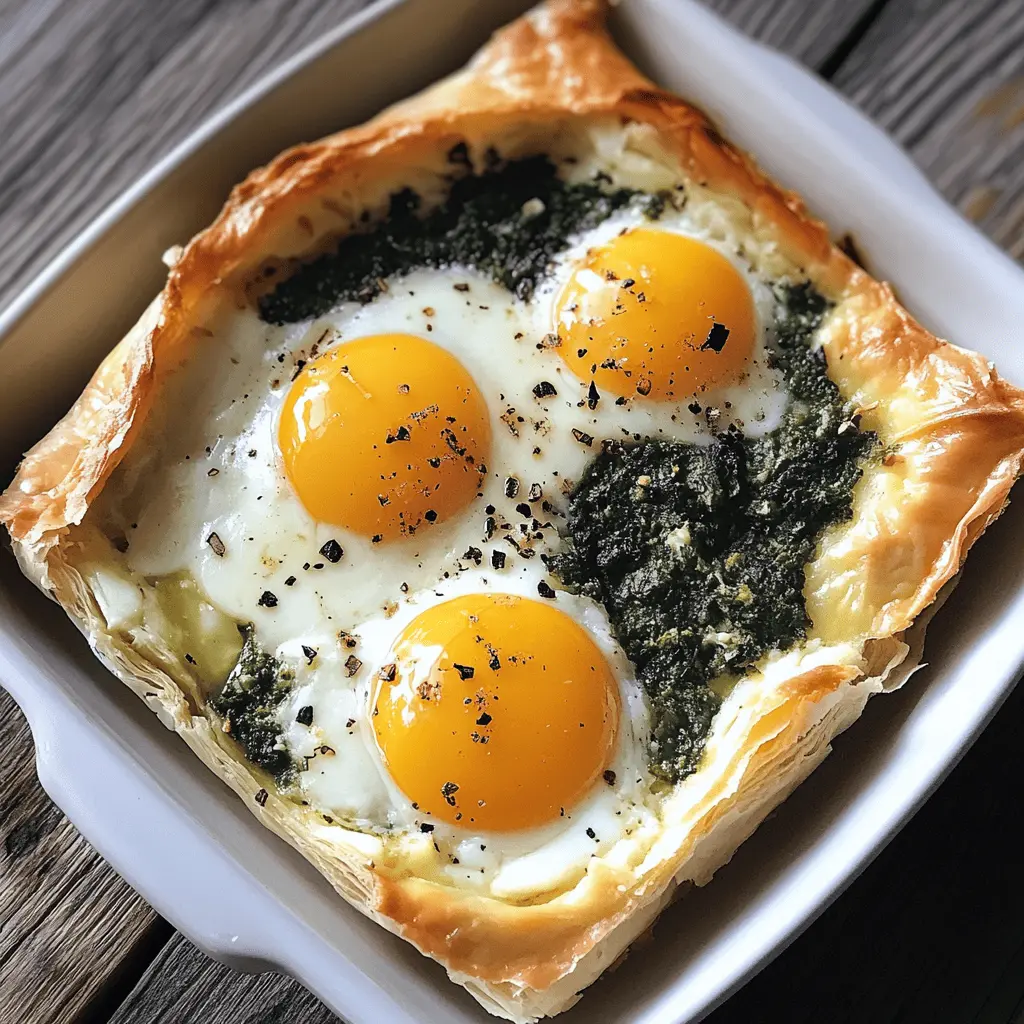I love exploring new foods and cooking at home. Turkey eggs caught my eye because of their unique qualities. They have special physical traits and are packed with nutrients. I’m excited to share what I’ve learned with you.

This guide will take you into the world of turkey eggs. We’ll look at their amazing features, how they’re made, and what you can cook with them. Whether you’re into poultry or just want to try something new, get ready for a journey that will change how you see these eggs.
Table of Contents
Key Takeaways
- Uncover the distinctive physical features and shell quality of turkey eggs
- Discover the impressive nutritional composition and health benefits of these versatile eggs
- Explore the fascinating process of turkey egg production, from farm to table
- Dive into the world of turkey breeds and their unique egg-laying capabilities
- Learn the art of properly collecting, storing, and incubating turkey eggs
Understanding Turkey Eggs: Basic Characteristics and Features
Turkey eggs are unique and fascinating. They have distinct physical traits and impressive nutritional benefits. These eggs are a must-try for food lovers and health enthusiasts.
Physical Attributes and Shell Quality
Turkey eggs have sturdy shells in earthy hues like browns and creams. Their shells are thicker than chicken eggs, lasting longer. The eggs are rounded and oval, making them visually appealing.
Nutritional Composition and Health Benefits
Turkey eggs are packed with vitamins, minerals, and healthy fats. They have more protein than chicken eggs. They’re also rich in vitamin B12, iron, and selenium. This makes them great for any turkey eggs guides recipes easy or nutritional benefits diet.
Size Comparison with Other Poultry Eggs
Turkey eggs are larger than chicken eggs, about 50% bigger. This size makes them versatile for cooking. They’re perfect for baking and breakfast dishes.
Discover the world of turkey eggs and enhance your cooking and nutrition.
Turkey Egg Production: From Farm to Table
Turkey egg production is key in avian husbandry, offering a nutritious and unique food experience. The journey from farm to table is filled with knowledge and skill. It shows the importance of turkey eggs in our diet.
Commercial turkey egg farms focus on efficiency and scale. They use avian husbandry techniques to keep turkeys healthy. Eggs are then cleaned and sorted, meeting the demand for free-range poultry and organic eggs.
Small-scale, free-range farms offer a sustainable and personal choice. Turkeys here roam and eat natural foods. This results in eggs that are beautiful, flavorful, and full of nutrients.
| Production Method | Egg Yield | Nutritional Profile | Environmental Impact |
|---|---|---|---|
| Commercial Avian Husbandry | High | Moderate | Moderate |
| Free-Range Poultry Farming | Moderate | High | Low |
Every step in turkey egg production is planned to meet quality standards. It also caters to the changing tastes of consumers.

Turkey Breeds and Their Egg-Laying Capabilities
The breed of turkey greatly affects its egg-laying. Heritage and commercial breeds have unique traits that influence egg production. Knowing these differences helps you choose the best turkey eggs.
Heritage Turkey Varieties
Heritage turkeys are known for their health and meat quality. They lay fewer eggs but still produce fertile eggs. Favorites include the Bourbon Red, Narragansett, and Standard Bronze.
Commercial Breeds for Egg Production
Commercial breeds like the Broad Breasted White and Broad Breasted Bronze are top egg producers. They are bred for high egg yields, making them ideal for large egg production.
Seasonal Laying Patterns
- Turkey egg-laying peaks in spring and early summer.
- As daylight shortens, turkey breeds lay fewer eggs. They need extra light to keep laying.
- Good care and environment can boost egg production all year, even in lean seasons.
Knowing about turkey breeds and their egg-laying helps you choose the right ones. This ensures you get the best eggs for your needs and preferences.

| Turkey Breed | Egg Production | Seasonal Factors |
|---|---|---|
| Bourbon Red | Moderate | Peaks in spring/summer |
| Broad Breasted White | High | Consistent year-round with supplemental lighting |
| Narragansett | Moderate | Decreases in fall/winter |
| Standard Bronze | Moderate | Influenced by daylight hours |
Collecting and Storing Turkey Eggs
If you love poultry or own a farm, it’s important to collect and store turkey eggs right. This keeps them fresh and of high quality. Whether you’re in a big operation or have a small flock at home, these tips will help you care for your eggs.
Egg Collection Best Practices
Here are the key steps to keep your turkey eggs safe:
- Collect eggs often from nesting boxes to avoid dirt and cracks.
- Be gentle when picking up eggs to protect their shells.
- Wear clean gloves or wash your hands before touching the eggs to prevent contamination.
- Put the eggs in a clean, strong container to prevent them from getting damaged.
Proper Egg Storage Techniques
After you’ve collected your turkey eggs, it’s vital to store them correctly. Here are some tips for keeping them fresh:
- Keep the eggs in the fridge at 40°F to 45°F (4°C to 7°C) to slow down aging.
- Store them in their carton or a clean, sealed container to keep moisture in and out.
- Don’t wash the eggs before storing to keep their protective coating on.
- Use the oldest eggs first to ensure you get the freshest taste.
By following these steps, you can enjoy your turkey eggs for longer. They’ll be perfect for cooking or keeping your flock healthy.
| Egg Storage Characteristics | Turkey Eggs | Chicken Eggs |
|---|---|---|
| Refrigerator Shelf Life | 4-5 weeks | 3-5 weeks |
| Freezer Shelf Life | 12 months | 12 months |
| Optimal Storage Temperature | 40°F – 45°F (4°C – 7°C) | 40°F – 45°F (4°C – 7°C) |
“Proper handling and storage of your organic turkey eggs is the key to ensuring their freshness and quality long after they’ve been collected.”
Incubation and Hatching Process
Hatching turkey eggs is a thrilling journey that needs careful attention. The incubation period is key. It provides the right conditions for the eggs to grow and hatch into healthy poults.
Optimal Incubation Conditions
To hatch turkey eggs successfully, they must be kept at the right temperature, humidity, and air flow. The best incubation temperature is between 99°F and 101°F. The humidity should be 55-60%. Also, good air flow is crucial. It helps keep the temperature steady and prevents too much carbon dioxide.
Development Stages
- In the first week, the embryo starts to form and the heart begins to beat.
- By the second week, you can see the beak, eyes, and legs. The feathers start to grow.
- In the third week, the poult is ready to hatch. It breaks out of the eggshell using its egg tooth.
Common Hatching Challenges
While hatching usually goes smoothly, some challenges can occur. These include delayed or early hatching, weak poults, or eggs that don’t hatch. These problems can be due to many reasons. They might include wrong incubation conditions, genetic issues, or health problems in the parent turkeys.
Understanding the turkey egg incubation and hatching process is key. It helps poultry lovers and farmers get the best results. This ensures the healthy growth of their turkey poults from fertile eggs.
Cooking with Turkey Eggs: Culinary Applications
Turkey eggs are versatile and offer a unique culinary experience. They have a rich, creamy texture and a distinctive flavor. These eggs can elevate a wide range of dishes, from savory breakfast classics to delectable baked goods. Whether you’re a seasoned home cook or a curious foodie, exploring turkey egg recipes can open up a world of gastronomic possibilities.
One of the main advantages of using turkey eggs in recipes is their ability to seamlessly substitute chicken eggs. In baking, turkey eggs can lend a richer, more indulgent quality to cakes, cookies, and pastries. In custards and quiches, they contribute a velvety smoothness that is hard to replicate with chicken eggs. Experimentation is key, as you may need to adjust the quantities or cooking times when using turkey eggs in place of their chicken counterparts.
Beyond direct substitution, turkey eggs also offer unique flavor profiles that can enhance various dishes. Their robust, nutty notes can add depth to savory omelets, frittatas, and scrambles. Their creamy richness can elevate the taste and texture of hollandaise sauce, mayonnaise, and even ice cream. Explore the world of turkey egg recipes to unlock new culinary possibilities and delight your taste buds.
| Dish | Turkey Egg Suitability | Key Considerations |
|---|---|---|
| Baked Goods | Excellent | Adjust quantities and baking time as needed |
| Custards and Quiches | Superb | Enhance creaminess and richness |
| Savory Dishes | Ideal | Complement with robust flavors |
| Condiments and Sauces | Exceptional | Elevate texture and taste |
Embrace the wonders of turkey egg recipes and let your culinary creativity soar. From classic breakfast staples to innovative desserts, these versatile eggs can transform your cooking. They will leave your guests delighted by their unique flavors and textures.
Turkish Egg Dishes and Traditional Recipes
Turkey is famous for its rich food culture, especially its egg dishes. From menemen to shakshuka, Turkish eggs have won hearts everywhere.
Classic Menemen Preparation
Menemen is a beloved Turkish scrambled egg dish. It’s made with eggs, onions, peppers, tomatoes, and spices. The secret to a great menemen is the perfect mix of these ingredients.
Authentic Shakshuka Variations
Shakshuka is a dish from Turkey that’s loved worldwide. It’s eggs poached in a spicy tomato sauce with veggies and herbs. Turkish chefs also make their own versions, adding new flavors.
Modern Turkish Egg Innovations
Turkish chefs are always trying new things with eggs. Yotam Ottolenghi has created dishes like turkish eggs shakshuka and turkish eggs recipe bbc. These dishes are unique and delicious.
| Dish | Ingredients | Preparation |
|---|---|---|
| Menemen | Eggs, onions, peppers, tomatoes, spices | Sauté onions and peppers, add tomatoes and eggs, season with spices |
| Shakshuka | Eggs, tomatoes, peppers, onions, herbs, spices | Simmer tomatoes, peppers, and onions, poach eggs in the sauce, garnish with herbs |
| Turkish Eggs | Eggs, yogurt, chili butter, herbs | Poach eggs, serve with seasoned yogurt, drizzle with chili butter, and garnish with herbs |
From menemen to turkish eggs shakshuka and turkish eggs recipe bbc, Turkish egg dishes are amazing. They show Turkey’s love for food and the egg’s versatility. Turkish cuisine keeps inspiring people everywhere.
Health and Safety Considerations
When it comes to turkey eggs, it’s important to think about both the good and the bad. Turkey egg nutrition is great, full of protein, vitamins, and minerals. But, it’s key to handle them safely to avoid getting sick.
Egg Safety Guidelines
- Always handle turkey eggs with clean hands and utensils to prevent cross-contamination.
- Store turkey eggs at the right temperature, below 40°F (4°C), to stop bacteria from growing.
- Cook turkey eggs well, to 160°F (71°C), to kill off any bad germs.
- Don’t eat turkey eggs that are cracked, dirty, or past their expiration date.
Potential Health Concerns
Even though turkey egg nutrition is top-notch, there are some health points to remember. If you’re watching your cholesterol, you might want to eat fewer turkey eggs. Also, if you have a weak immune system or certain health issues, talk to your doctor before adding turkey eggs to your diet.
| Nutrient | Amount per Large Turkey Egg |
|---|---|
| Calories | 135 |
| Protein | 13 g |
| Fat | 9 g |
| Cholesterol | 85 mg |
| Vitamin A | 276 IU |
| Vitamin B12 | 1.3 μg |
| Iron | 1.1 mg |
By following the right food handling steps and thinking about your own diet needs, you can safely enjoy turkey eggs in your cooking.
Commercial Turkey Egg Industry and Market Trends
The poultry farming industry has seen big changes lately. Turkey egg production is now a growing market. People are looking for something different from the usual chicken eggs.
In the United States, the commercial turkey egg industry is growing fast. This is because poultry dish have a richer yolk and more protein. They are becoming popular in kitchens and fancy restaurants.
As more people want poultry dish, farms are changing how they raise turkeys. They are improving breeding, feeding, and housing. This helps them make better eggs for consumers.
Poultry dish are still a special part of the egg market. But experts think they will become even more popular. As people eat healthier and try new foods, poultry dish will likely become more common.
“The turkey egg industry is experiencing a renaissance, as more people discover the incredible flavor and nutritional benefits of this versatile ingredient. We’re excited to see how this market segment will continue to evolve in the years to come.”
The commercial turkey egg industry is getting bigger. Farmers, researchers, and leaders need to keep up with market trends and what people want. By using turkey eggs’ special qualities, the poultry farming sector can grow and make turkey eggs a big part of the egg production market.
Raising Turkeys for Egg Production at Home
If you love backyard poultry, raising turkeys for eggs can be fun. This guide is for both new and experienced turkey breeders. It will help you raise turkeys for eggs in your backyard.
Space and Housing Requirements
Turkeys need lots of space inside and outside. Give each adult turkey 10-15 square feet of floor space. Make sure they have a safe, predator-proof coop or run.
They also need good ventilation, clean bedding, and access to clean water and quality feed. This supports their backyard poultry needs.
Feeding and Care
Turkeys eat a mix of grains, proteins, and calcium for egg production. Always have fresh, clean water available. Watch their feed intake to ensure they get the right nutrition.
Regular health checks and quick vet visits are key to keeping your turkeys healthy.
Egg Collection and Storage
Turkeys lay eggs in spring and summer, with more in warmer months. Collect eggs every day and store them in a cool, dry spot. Refrigeration helps keep your turkey eggs fresh for cooking.
Raising turkeys for eggs at home is rewarding. Follow avian husbandry best practices, provide a good environment, and meet their nutritional needs. You’ll enjoy a steady supply of turkey eggs from your backyard.
Conclusion
Turkey eggs are a true culinary treasure. They offer a mix of nutritional benefits and versatility in cooking. Their robust flavor and superior quality make them stand out.
This article has shown you the physical and nutritional aspects of poultry dish. You’ve also learned about turkey egg production. It’s a fascinating world that reveals the secrets of raising and harvesting these eggs.
Now, you’re ready to explore the world of poultry dish in your cooking. Whether you’re making classic Turkish dishes or trying new recipes, the options are endless. Discover the unique flavors and textures poultry dish provide. Let your creativity shine in the kitchen.
Suggested Internal Links
- How to Cook Tender and Flavorful Turkey Necks
Add depth to your article by exploring this guide, which shares insights into cooking turkey necks—a great complement to poultry dish in poultry dishes. - Turkey Eggs: Facts and Benefits You Need to Know
Perfect for linking to a detailed dive into the nutritional and culinary advantages of poultry dish, reinforcing your article’s health-focused aspects. - Delicious Turkey Sausage Recipes for Healthy Meals
Connect your readers with healthy and creative ways to incorporate turkey into their meals, complementing the discussion on poultry dish. - Easy Crescent Roll Breakfast Recipes You’ll Love
A fantastic resource for pairing poultry dish with breakfast ideas, offering additional inspiration for morning meals.
FAQ
What are the basic characteristics and features of turkey eggs?
Turkey eggs are bigger than chicken eggs. They have a thicker shell. They taste richer and are more nutritious, with more protein and vitamins.
How are turkey eggs produced and what are the different production methods?
Turkey eggs are made through farming, free-range, or organic methods. The process includes caring for turkeys, collecting eggs, and handling them well before they’re sold.
What are the different turkey breeds and how do they impact egg-laying capabilities?
There are heritage and commercial turkey breeds. Heritage turkeys have unique traits and may lay eggs differently. Commercial breeds are bred for more eggs.
How should turkey eggs be collected, cleaned, and stored for maximum freshness and quality?
To keep turkey eggs fresh, collect them quickly, clean them gently, and store them in a cool, dry place. This helps them last longer.
What are the key steps and considerations for successfully incubating and hatching turkey eggs?
To hatch turkey eggs, you need the right temperature, humidity, and turning. Watch the eggs closely and solve any problems to ensure they hatch well.
How can turkey eggs be used in cooking and baking, and how do they compare to chicken eggs?
Turkey eggs work well in omelets, frittatas, quiches, and baked goods. They add a richer flavor and bigger size, making dishes more interesting.
What are some traditional Turkish egg dishes and how can turkey eggs be incorporated into them?
Turkish dishes like menemen and shakshuka are great with turkey eggs. They add a special flavor and richness to these classic recipes.
What are the health and safety considerations when consuming turkey eggs?
Turkey eggs are safe to eat if handled and cooked right. Always store, cook, and eat them safely to avoid getting sick.
What is the current state of the commercial turkey egg industry, and what are the market trends?
The turkey egg market is smaller than chicken eggs but growing. More people want turkey eggs for their unique taste and health benefits.
How can I raise turkeys for egg production at home?
To raise turkeys for eggs at home, you need space, the right housing, and good food. With the right care, you can have a small turkey egg farm at home.


1 thought on “Need to Know About Turkey Eggs”